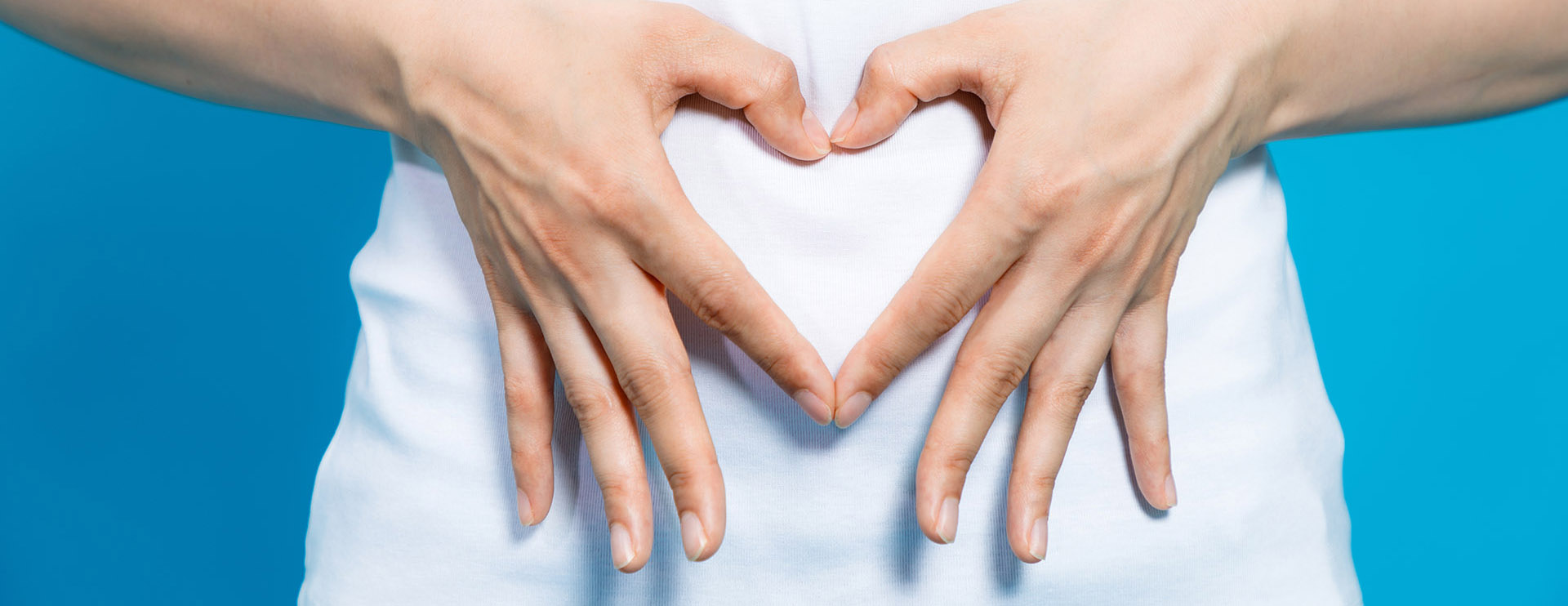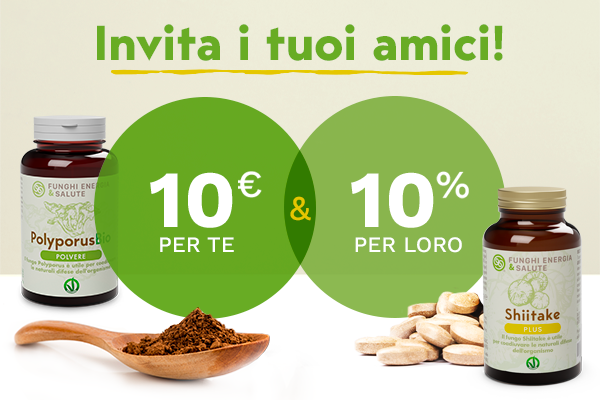Certified Natural products veganOK
030 9881073 Monday to Friday from 09:00 to 17:30


to get immediately a discount code
on your first purchase
Constipated bowel? Help it with healing mushrooms
- Home
- News & Press
- Constipated bowel? Help it with healing mushrooms
Article which appeared in the online magazine key4biz.it 23/10/2015.
By Dr Walter Ardigò.
Enjoy reading!

La stitichezza è una problematica talmente diffusa che molte persone tendono a considerarla normaa
Constipation is such a widespread problem that many people tend to consider it normal and minimize it. Instead, it should not be underestimated. First, because it is annoying and can negatively affect the quality of life. Secondly because, if neglected, it can lead to progressive damage to bowel functions and, consequently, to a reduction in the efficiency of the immune system cells which are mostly located in the intestine. Moreover, many of the toxins and impurities present due to constipation manage to reach the bloodstream and are distributed throughout the body. The result of this process? An escalation appears which gives rise to far more serious intestinal diseases, such as colitis, diverticula, polyps and Crohn's disease. In addition, pathologies apparently not connected with constipation, such as flu, cystitis, allergies, dermatitis, headache, also appear.
It is an alarm bell which should not be ignored
This is why it is very important to learn to consider constipation as sign that our body sends us to warn us that something is wrong. Faced with this symptom, the solution is not to decide to do nothing and put up with it, but to do everything possible to improve the situation. Mycotherapy, the treatment based on the biological properties of mushrooms, is invaluable in this sense. In fact, it is capable of solving both the symptoms and the underlying problems.
The most suitable remedies
The most effective mushroom for constipation is Auricularia. This remedy, in fact, manages to free even the most blocked, inflamed and constipated bowels whether the problem is caused by incorrect nutrition (essentially rich in animal proteins: meat and dairy products) or actual diseases. This beneficial action is thanks to adenosine, an active ingredient present in Auricularia, which fights intestinal inflammation and activates peristalsis, the movement necessary for digestion and evacuation. Adenosine also acts at a psychological level, counteracting anxiety, one of the worst enemies of the digestive system.
For people who suffer from very stubborn constipation, I recommend starting with a high dose of Auricularia, so as to have faster benefits. In this case I recommend taking 8 to 16 grams of Auricularia powder per day, for a few days, to produce an immediate effect of freeing the bowels. Then, a normal dosage of 2 grams per day, to be used for at least three months, can gradually be introduced. The choice of Auricularia powder, rather than tablets, is to be preferred precisely because of the release function it exerts on the intestine.
If there is also a lot of bloating, it can be useful to add Shiitake, which works by contrasting abdominal bloating, regenerating the intestinal bacterial flora and strengthening the intestinal defence system. Finally, for an even more decisive action, Reishi (Ganoderma lucidum) can be associated, a mushroom that, among other things, facilitates the functioning of the stomach and intestines. Reishi and Shiitake can be taken at a dosage of two grams per day in powder or tablets, for at least three months.
The association of Vitamin C is always useful to increase the absorption of the active ingredients of the mushrooms.
What is constipation?
Constipation is a bowel disorder characterized by a reduced frequency of defecation. This is, at least in part, a subjective problem: in fact, the methods and times of defecation are strictly individual, so one person can feel constipated already after a day, while another does not. In general, however, a person is considered constipated when there is bowel movement less than three times a week, with the emission of hard, dry, difficult to expel stools or when habits change over time (defecation becomes less frequent). Constipation is sometimes associated with intestinal bloating. In fact, stagnation of the faeces in the terminal part of the intestine favours the proliferation of bacteria of putrefaction, which produce gas, and hinder the expulsion of faeces.
See you next week
Dr Walter Ardigò
www.dottorardigo.it
www.funghienergiaesalute.it
le e a sottovalutarla. Invece, non va assolutamente minimizzata. Innanzitutto, perché è fastidiosa e può influire in maniera negativa sulla qualità della vita. In secondo luogo perché, se trascurata, può comportare un danneggiamento progressivo delle funzioni dell’intestino e, di conseguenza, una riduzione dell’efficienza delle cellule di difesa che, per gran parte, sono localizzate proprio in quest’organo. Non solo: è bene sapere che molte delle tossine e impurità presenti a causa della stipsi riescono a raggiungere la circolazione sanguigna e si distribuiscono in tutto il corpo. Il risultato di questo processo? Compare un’escalation che dà origine a malattie intestinali ben più serie, come coliti, diverticoli, polipi e morbo di Crohn. Inoltre, possono subentrare patologie apparentemente scollegate dalla stipsi, come influenza, cistite, allergie, dermatite, mal di testa.
È un segnale di allarme da non sottovalutare
Ecco perché è importantissimo imparare a considerare la stitichezza come un segnale di allarme che il nostro organismo ci lancia per avvertirci che c’è qualcosa che non va. Di fronte a questo sintomo, non bisogna far finta di nulla e rassegnarsi, bensì fare il possibile per migliorare le cose. La micoterapia, la forma di cura basata sulle proprietà biologiche dei funghi, è preziosissima in questo senso. Infatti, è in grado sia di risolvere le manifestazioni sia le problematiche alla base.
I rimedi più indicati
Il fungo più efficace in assoluto contro la stipsi è l’Auricularia. Questo rimedio, infatti, riesce a liberare anche gli intestini più bloccati, infiammati e stitici, a causa di un’alimentazione scorretta (essenzialmente ricca di proteine animali: carne e latticini) e di malattie vere e proprie. Tutto merito dell’adenosina, un principio attivo presente nell’Auricularia, che combatte le infiammazioni intestinali e attiva la peristalsi, il movimento necessario alla digestione e all’evacuazione. L’adenosina agisce anche a livello psichico, contrastando l’ansia, uno dei nemici più temibili per il funzionamento dell’apparato digerente.
Alle persone che soffrono di stitichezza molto ostinata consiglio di iniziare con una dose elevata di Auricularia, così da avere benefici in tempi più rapidi. In questo caso consiglio di assumere da 8 a 16 grammi di polvere di Auricularia al dì, per qualche giorno, in modo da poter godere di un effetto sblocco molto veloce. Poi, una volta liberato l’intestino, si può ritornare gradualmente al dosaggio normale di 2 grammi al giorno, da usare per almeno tre mesi. La scelta dell’Auricularia in polvere, piuttosto che in compresse, è da preferirsi proprio per la funzione di sblocco che esercita sull’intestino.
Se è presente anche un gonfiore accentuato, può essere utile abbinare lo Shiitake, che agisce proprio contrastando il gonfiore addominale, rigenerando la flora batterica intestinale e rafforzando le difese intestinali. Per un’azione ancora più decisa, infine, si può associare il Reishi (Ganoderma lucidum), un fungo che, fra le altre cose, facilita il funzionamento dello stomaco e dell’intestino. Reishi e Shiitake possono essere assunti al dosaggio di due grammi al giorno in polvere o compresse, per almeno tre mesi.
Sempre utile l’associazione della Vitamina C per aumentare l’assorbimento dei principi attivi dei funghi.
Che cos’è la stipsi
La stipsi è un disturbo della defecazione caratterizzato da una ridotta frequenza dell’alvo. Si tratta, almeno in parte, di una problematica soggettiva: infatti, i modi e i tempi di evacuazione sono strettamente personali, per cui una persona può sentirsi stitica già dopo un giorno di mancata espulsione delle feci, mentre un’altra no. In linea generale, comunque, un soggetto è considerato stitico quando evacua meno di tre volte alla settimana, con emissione di feci dure, asciutte, difficili da espellere oppure quando le sue abitudini di evacuazione cambiano nel tempo (defeca con minore frequenza). La stipsi talvolta si associa a gonfiore intestinale. Infatti, il ristagno delle feci nella parte terminale dell’intestino favorisce il proliferare dei batteri della putrefazione, che producono gas, e ne ostacola l’espulsione.
Alla prossima settimana
dr Walter Ardigò
www.dottorardigo.it
www.funghienergiaesalute.it

